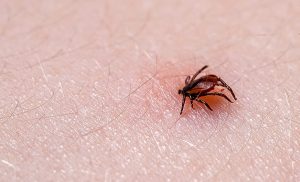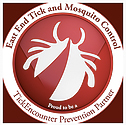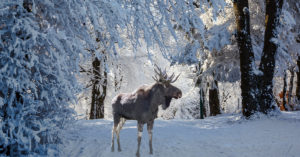 Winter typically isn’t prime time for ticks. Nearly all tick species are most active during the warmer months – April through September. Some even die off or become dormant when the weather cools. But there is one tick species that flourishes in cold weather… decimating wild animal populations and wreaking havoc on northern ecosystems.
Winter typically isn’t prime time for ticks. Nearly all tick species are most active during the warmer months – April through September. Some even die off or become dormant when the weather cools. But there is one tick species that flourishes in cold weather… decimating wild animal populations and wreaking havoc on northern ecosystems.
What Is A Moose Tick?
The Dermacentor albipictus, also known as a moose tick or winter tick, is a parasitic arachnid. It is a one-host tick, feeding on a single host throughout its larval, nymphal, and adult life stages – only dropping off to lay eggs and die.
The moose or winter tick feeds primarily on ungulates like moose, deer, elk, or caribou. Sometimes they feed on horses, cattle, coyotes, beavers, or black bears if they cannot find another host. Although they rarely find their way onto humans, they have been found on pet dogs. So, care needs to be taken if you take your pets to an area where these ticks are present.
Why Are They Called Winter Ticks?
The dermacentor albipictus is known as a winter tick because it thrives in cold temperatures. Most tick species become less active during the cold months, but winter ticks are most active in autumn and winter – causing devastating consequences for their primary host species.
Even though they don’t transmit diseases, thousands of these ticks will attach to a single host for up to six months causing massive blood loss and extreme weakening. Moose are especially vulnerable to winter tick depredations. Moose will rub off their own fur trying to remove the ticks, subsequently freezing to death because they are no longer protected by their thick winter coats. In some areas of New England, these ticks wiped out nearly 90 percent of all moose calves during the winter of 2021-22.
Where Are Winter Ticks Found?
Found throughout Canada, Northern New England, Minnesota, and in certain areas of the Rockies; the dermacentor albipictus’s range is quite broad. Winter ticks aren’t a Long Island problem currently but – like many pests – their range is constantly changing.
They haven’t been officially documented by the New York State Department of Environmental Conservation. But scientists are concerned that winter ticks may expand their range into the Adirondacks, Taconic Highlands, and other areas of New York State where moose are present.
East End Tick Control® Can Provide Year-round Tick Prevention
While moose ticks aren’t a problem for residents of East End Long Island at this point, black-legged (deer) ticks are still active in the colder months. If you see signs of any kind of ticks on your property, East End Tick Control® is your removal and exclusion expert. If you’re in Southampton, call (631) 287-9700; in East Hampton, call (631) 324-9700; or in Southold, call (631) 765-9700. You can also message us online for more information or to request a free estimate.
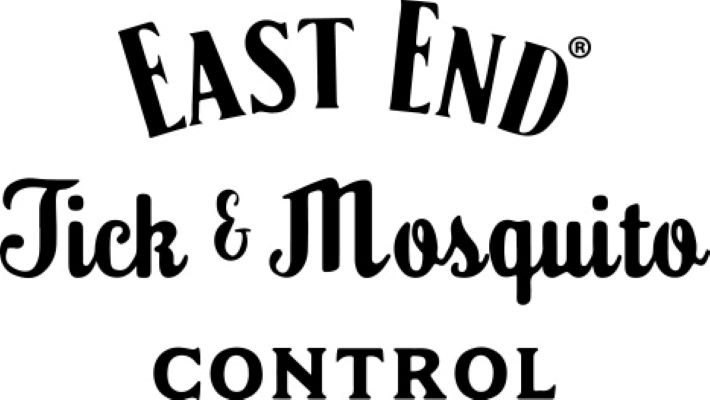
 Icy roads, high heating bills, frozen pipes, shoveling snow. These are all concerns we deal with during a Long Island winter. But ticks? Do we need to worry about ticks in the heart of winter? The answer may come as an unpleasant surprise for you.
Icy roads, high heating bills, frozen pipes, shoveling snow. These are all concerns we deal with during a Long Island winter. But ticks? Do we need to worry about ticks in the heart of winter? The answer may come as an unpleasant surprise for you. 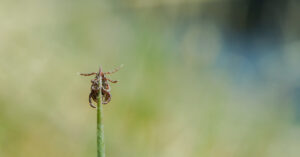 When temperatures dip, you may think pest-related threats have ended for the winter. This is true for some pests but not so for ticks. April through October is considered tick season in the northeast United States, but these disease-carrying pests can thrive well into autumn and winter. Ticks are active when temperatures are above 40 degrees Fahrenheit, emerging from mulch beds and from under wood piles. Our
When temperatures dip, you may think pest-related threats have ended for the winter. This is true for some pests but not so for ticks. April through October is considered tick season in the northeast United States, but these disease-carrying pests can thrive well into autumn and winter. Ticks are active when temperatures are above 40 degrees Fahrenheit, emerging from mulch beds and from under wood piles. Our 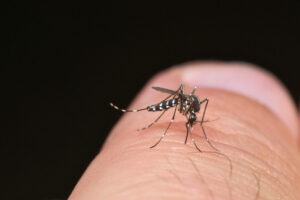
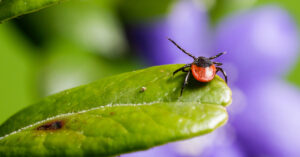 Autumn and winter are times for fall festivals and other outdoor events. From skiing, ice fishing, and other winter sports, it is a time of many outdoor entertainment options. Along with spending time outdoors comes the risk of exposure to ticks. But how bad is that risk?
Autumn and winter are times for fall festivals and other outdoor events. From skiing, ice fishing, and other winter sports, it is a time of many outdoor entertainment options. Along with spending time outdoors comes the risk of exposure to ticks. But how bad is that risk? 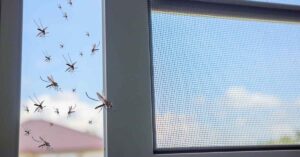 The time has changed. The leaves are falling. So it should be time for mosquitos to be a distant spring and summer memory, but on Long Island, that’s not always the case. The sneaky flying pests might be hiding in your house for one last hurrah of the year.
The time has changed. The leaves are falling. So it should be time for mosquitos to be a distant spring and summer memory, but on Long Island, that’s not always the case. The sneaky flying pests might be hiding in your house for one last hurrah of the year.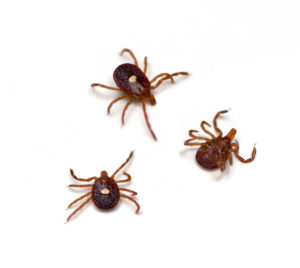 Most people believe that colder temperatures kill ticks but we’re here to let you know that myth is FALSE. During the fall season (October and November), ticks are active and looking to feed as they know winter is on the horizon and they’ll need to survive until spring.
Most people believe that colder temperatures kill ticks but we’re here to let you know that myth is FALSE. During the fall season (October and November), ticks are active and looking to feed as they know winter is on the horizon and they’ll need to survive until spring. 